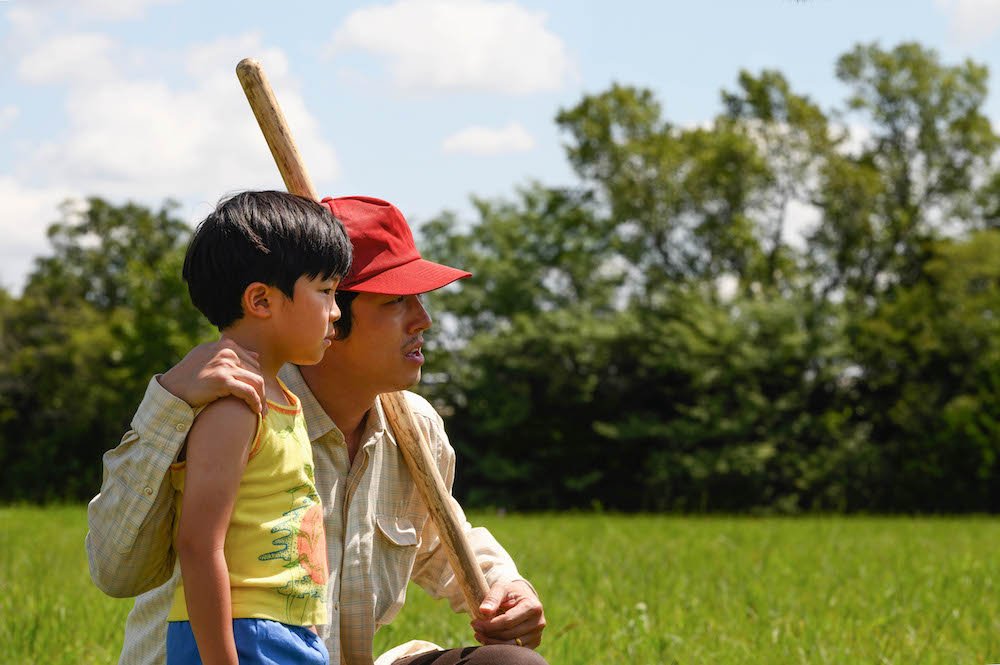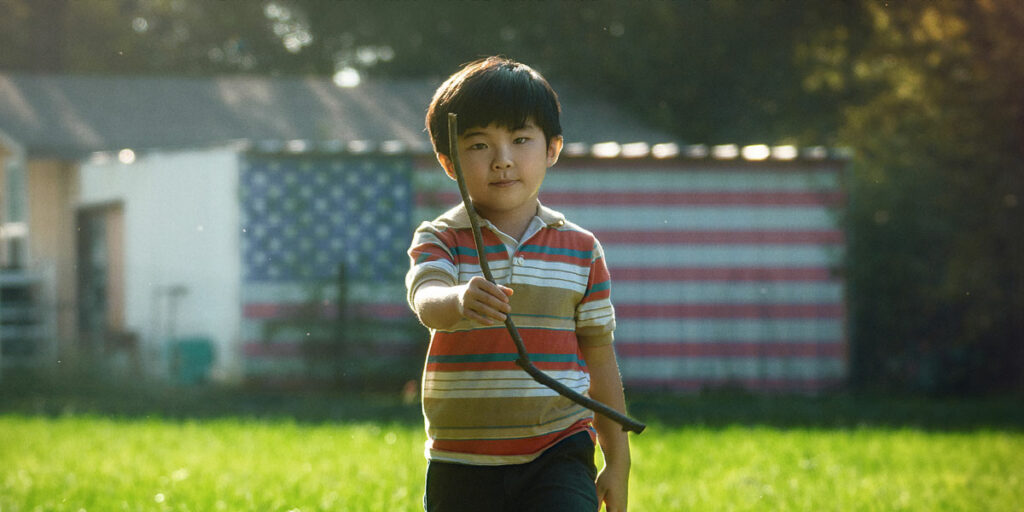Minari, the story of a Korean family’s move to Arkansas in the 80s, is one of 2020’s finest films and a testament to star Steven Yeun’s talent.
Minari tells the story of a Korean family who has moved to rural Arkansas in an attempt to slice off a piece of the American Dream. After approximately a decade in California as chicken sexers (a job, I will admit, to having never heard of before this film), the Yi family is driven to uproot their lives by the family’s patriarch, Jacob (Steven Yeun). Jacob, frustrated that his hard work has amounted to little, sees opportunity in building his own farm – a “Garden of Eden”, as he describes it.
Director Lee Isaac Chung (Munyurangabo) splendidly sets up the family’s dynamic in the film’s dreamy opening sequence. Monica (Yeri Han), the matriarch, and her two children, David (Alan S. Kim) and Anne (Noel Cho), drive slowly through the Arkansas plains following a moving truck down increasingly dilapidated roads. The truck, driven by Jacob, is slowly dragging the family out into the wilderness – his dream pulling his family deeper and deeper into a whole new world, in a sequence that feels almost overwhelming. The visual metaphor is stark: Jacob is quite literally dragging all of their things into the wilderness, his family forced to follow.
As the family arrives at their new abode – one child remarks on the wheels beneath the house, more converted tractor trailer than actual home – the separation between husband and wife is clearly far larger than just two cars. “This is not what you promised”, Monica exclaims. Just as the unstated hostility of the scene is bubbling up, Chung beautifully undercuts it with a sly bit of physical humor: the family is forced to quite literally climb a few feet into the home – there are no stairs.
Where Minari really shines is in depicting a complicated family dynamic without ever succumbing to melodrama. It’s such a delicate balance that Chung handles with remarkable grace. The ringing specificity of little moments speaks to long-hued dynamics: as the parents fight the two children retreat to a bedroom and swiftly build paper airplanes each adorned with a message – “Don’t Fight!” – which they toss into the midst of their mother and father’s conflict. Moments where a lesser director would style as the first hubristic step towards karmic disaster are here treated as conflicted choices. Should Jacob trust a local water diviner or follow the contours of his land and try to build his own well? Jacob’s choice is prideful, but not incompetent.

The family dynamic is shaken up in the second act by the arrival of Monica’s mother from Korea to help care for the family’s children. Played with almost overwhelming charisma by a gloriously puckish Yuh-Jung Youn (Sense8), Soonja quickly pivots the family’s tensions. She enlivens the days of the children and helps paper over the tensions within the marriage. As David, the son, exclaims, she’s not a “real” grandmother: she plays cards, she curses, she refuses to bake. And yet, over the film’s run time, the two form a special bond, the film’s most impactful connection.
It’s not long until grandma and grandson are taking long walks in the woods, where Soonja teaches David about the heartiness of the Korean minari herb, a lovely allegory for the Korean immigrant story. The two watch Saturday morning pro wrestling and drink “the water of the mountain” (the character’s blissfully unaware explanation of Mountain Dew). Their dynamic adds the element of humor necessary for the film’s delicate tonal balance.
Let’s talk about Steven Yeun. The modern method for most actors to achieve stardom is the one-for-me, one-for-them ethos. You do a big studio franchise movie to pay the bills while you pursue the projects you’re passionate about between franchise tentpoles. Yeun has elected something different – he’s gone way off the conventional path in his role selection. After The Walking Dead put him on the map, Yeun has paid the bills with dozens of voice acting credits, while selecting films from largely unknown domestic directors or pursuing chances in his native Korea.
His The Walking Dead performance as the group’s resident optimist, Glenn, showed a sort of easy charisma and charm that spoke to a strong future. His turn in Burning showed a talent capable of immense swagger able to play both overwhelmingly confident and deeply inscrutable. Minari allows Yeun to showcase his subtler, more introspective skills. Jacob is a man who carries so much weight just beneath the surface. Each little misstep weighs heavily on him, but he maintains a near obfuscatory sense of optimism in the face of his family’s questions. Yeun’s dynamic with his son, David – a stellar Alan S. Kim – echoes in the truth of father-son relationships. He’s strict, yet educating; distant, yet fun. It is beautiful, captivating work – the best of Yeun’s career and one of the best performances of the year.
While I watched Minari as part of the Hamptons Film Festival, I must remark how saddened I am to watch it at my home instead of on the big screen. Director Chung and cinematographer Lachlan Milne (Hunt for the Wilderpeople) have crafted a gorgeous ethereal version of Arkansas. It would have been lovely to see on the big screen. That said, Minari is one of 2020’s finest films and I hope that it finds a release that allows it access to the sort of audience it deserves.
Minari won the Grand Jury Prize at at the 2020 Sundance Film Festival, and is now available to watch on digital and on demand.

